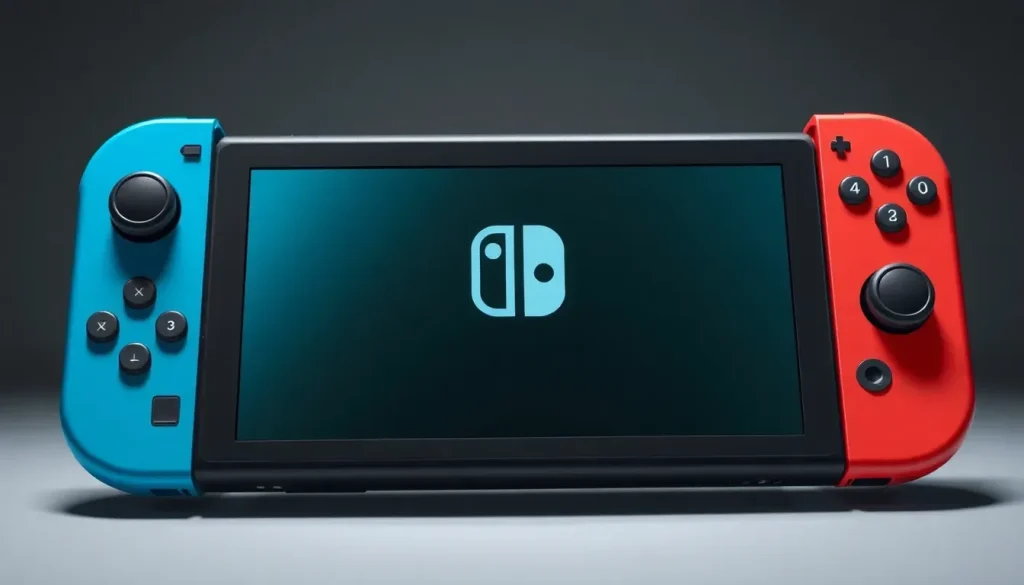Nintendo wins lawsuit against Switch ROM seller ordered to pay 4.5 million in damages

Nintendo, the iconic Japanese gaming company, is no stranger to the legal battleground. Known for its beloved franchises such as Mario and Zelda, it has also established a reputation for fiercely protecting its intellectual property rights. The company’s recent legal victory against a ROM seller has once again highlighted its commitment to combating piracy, as Nintendo demands a staggering $4.5 million in damages. This case raises important questions about copyright, digital distribution, and the future of gaming.
- Nintendo's legal victory against a ROM seller: a demand for .5 million
- Previous victories in the fight against ROM sellers
- Understanding Nintendo's motivation behind these lawsuits
- Controversies surrounding Nintendo's legal actions
- Other entities taking a stand against Nintendo
- The future of Nintendo's legal strategy: potential implications for the gaming industry
Nintendo's legal victory against a ROM seller: a demand for $4.5 million
In a recent triumph for Nintendo, the company has secured a significant legal victory against James "Archbox" Williams, a moderator from the Reddit community r/SwitchPirates. This case dates back to late 2024 when Nintendo initiated a thorough investigation into suspected piracy activities on Reddit, specifically targeting those involved in the distribution of unauthorized game copies and modified consoles.
Following its findings, Nintendo filed a federal lawsuit accusing Williams of copyright infringement due to his sale of Nintendo Switch ROMs. The outcome of the lawsuit has culminated in a hefty demand for $4.5 million in damages, underscoring the company's aggressive stance against piracy. Such legal actions are not merely punitive; they serve as a warning to others in the industry.
Nintendo's approach is driven by a desire to protect its creations from unauthorized use and to preserve the integrity of the gaming experience. The company’s legal team has made it clear that it will pursue any individual or entity that threatens its intellectual property rights, no matter how large or small.
Previous victories in the fight against ROM sellers
This recent ruling is not an isolated incident; Nintendo has a history of successfully taking action against ROM sellers and individuals who facilitate piracy. One notable case involved Ryan Daly, who modified Switch consoles and bundled them with pirated games. In that instance, Nintendo won a settlement of $2 million, highlighting the substantial penalties that can arise from such infringements.
Aside from Daly, there have been several other instances where Nintendo has taken legal action against individuals and companies involved in the unauthorized distribution of their games. Some of the notable cases include:
- Legal actions against emulation software developers.
- Demands for takedowns of fan-made content that infringes on their copyrights.
- Efforts to shut down websites that distribute pirated games.
While Nintendo’s aggressive litigation strategy has often resulted in financial compensation, it also aims to deter potential infringers from attempting to exploit its intellectual properties in the first place.
Understanding Nintendo's motivation behind these lawsuits
The question arises: Why does Nintendo pursue legal action so relentlessly? The primary motivation lies in the company’s commitment to protecting its intellectual property, which is essential for its business model. Nintendo relies heavily on its game sales and console revenue, which can be adversely affected by piracy.
Additionally, Nintendo’s games and franchises are not just products; they represent significant cultural icons. By safeguarding these properties, Nintendo ensures that the quality and creativity of its content are maintained. The company believes that piracy undermines their efforts and harms the fanbase that cherishes their games.
Controversies surrounding Nintendo's legal actions
While many support Nintendo's right to defend its intellectual property, there are critics who argue that the company sometimes goes too far. For instance, several YouTube content creators have faced lawsuits for merely showcasing Nintendo games, leading to concerns about the implications for digital content creators.
Critics point out that:
- The aggressive prosecution of fan-made projects can stifle creativity.
- Legal actions against individuals can disproportionately affect small creators and hobbyists.
- Nintendo’s tactics may lead to backlash from the gaming community, which could harm their reputation.
These controversies have sparked discussions about the balance between protecting intellectual property and fostering a thriving creative community within the gaming industry.
Other entities taking a stand against Nintendo
Interestingly, not all entities have succumbed to Nintendo’s legal might. A notable case involves Pocketpair, the developers behind the game Palworld, who have successfully challenged Nintendo’s claims regarding patent infringements related to Pokémon. This case exemplifies a growing trend where smaller developers are willing to stand up against larger corporations.
This situation poses an intriguing question for the industry: as gaming continues to evolve, will we see a shift in how companies like Nintendo approach legal disputes? Will they continue to adopt a hardline stance, or will they begin to embrace a more collaborative approach with the gaming community?
The future of Nintendo's legal strategy: potential implications for the gaming industry
As Nintendo continues to aggressively pursue legal action against piracy and copyright infringement, the implications for the gaming industry are significant. The company’s approach not only affects those directly involved in piracy but also sets a precedent for how digital rights are enforced in the gaming world.
Possible future developments could include:
- Increased collaboration with platforms to address piracy issues.
- Enhanced educational initiatives to inform the public about the importance of intellectual property rights.
- Potential changes in copyright laws to better address digital content distribution.
As the landscape of gaming continues to change, companies must adapt their strategies to protect their interests while fostering a supportive environment for creators and fans alike.




Leave a Reply